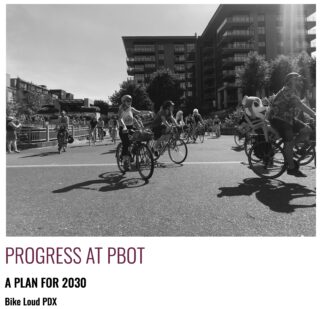
(Link on Google Docs)
Portland is considered a mecca for America’s bicycling brain trust. Scores of top-tier cycling planners and researchers work in the central city every day. The campus of Portland State University and the City of Portland building is full of leaders in their respective fields who are often courted to speak on cycling-related topics at conferences across the nation and beyond.
That makes it improbable that progress on bicycling has stalled here, and even more improbable that an unpaid group of volunteers might be the ones who finally get it back on track.
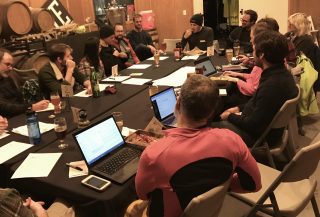
(Photo © J. Maus/BikePortland)
Bike Loud PDX is the epitome of the grassroots. They have no paid staff, yet are dogged in their pursuit of better bike policies and projects. They’ve notched impressive victories since their successful campaign to make cycling safer on Southeast Clinton street in 2014. But their most impressive action yet is their campaign to get Portland to respect its bicycle master plan.
Passed 10 years ago today, the Portland Bicycle Plan for 2030 outlined lofty goals. While it flew through council with lofty rhetoric, it was an unfunded mandate that has felt invisible to all but the wonkiest insiders and city staffers.
Bike Loud’s report, Progress at PBOT, a Plan for 2030 is like an emergency flare for biking in Portland.
Advertisement
The group’s Co-Chair Catie Gould said while putting the report together, “It was quite clear to us, that as a system, we do not have the proper resources or processes in place to transform our streets in the ways that the 2030 Bike Plan envisioned.” “We are not asking for anything new or radical,” she continued, in an email to BikePortland Monday, “We simply want the Bureau of Transportation to be successful in its own adopted goals. While our leaders hearts are often in the right places, and some good initiatives are advancing, it is not nearly enough.”
What’s in the report?
Recommendations: Bike Loud wants an independent audit on project delivery times, a budget that aligns with adopted values and goals, a city ordinance that requires building to adopted plans whenever a street is restriped or reconstructed, more transparency and accountability around public processes, and the adoption of a new Neighborhood Greenway report that includes stronger policies around diversion.
Clear implementation goals: In the nine years since its adoption, the report says, only 26% of the necessary projects have been built. “With only 75 miles planned within the next 5 years, we estimate that by 2030 only 35% of the original network will be implemented. To complete the network that was originally recommended, PBOT would have to construct an additional 295 miles of bike facilities per five years, or 59 miles per year.”
PBOT must be more transparent around project selection: Bike Loud says one challenge is inconsistent choices by PBOT staff around which projects get built and how they get built. “Which projects will PBOT prioritize? Around transit? Most community complaints? Most politically palatable? Along the 2040 Growth concept? After someone is killed by the driver of a motor vehicle? The public deserves an honest conversation about these missed expectations. PBOT needs to align on how projects are selected and how we can get the fastest return on investments on our efforts.”
Up the greenway game: The report says the safety on neighborhood greenways has “degraded” with so many more people driving on them and that diverters have not kept up with that traffic increase. They call for an annual assessment to City Council, more by-the-book design decisions, and less project-by-project compromises.
Advertisement
Increase excitement: In a section on public buy-in, Bike Loud says PBOT needs to give people a more tangible sense of the potential benefits of projects. They recommend an annual carfree day where low-car/bike/walk features could be experienced first-hand.
Gould with Bike Loud says PBOT Commissioner Chloe Eudaly and PBOT Policy Projects and Planning Group Manager Art Pearce were given a copy of the report back in January. They are yet to hear any feedback but expect it to come very soon. “When we started putting this report together we expected a 2030 Bike Plan update would be going to city council this winter, but it still has not been scheduled.”
Come out to today’s event to help put cycling back on Portland’s political radar.
Bike Plan 10th Anniversary Rally
12:00 pm to 1:00 pm at City Hall on SW 4th Street
Facebook event page
Speeches, cupcakes, kazoos, clever signs, merriment, networking, etc…
— Jonathan Maus: (503) 706-8804, @jonathan_maus on Twitter and jonathan@bikeportland.org
— Get our headlines delivered to your inbox.
— Support this independent community media outlet with a one-time contribution or monthly subscription.



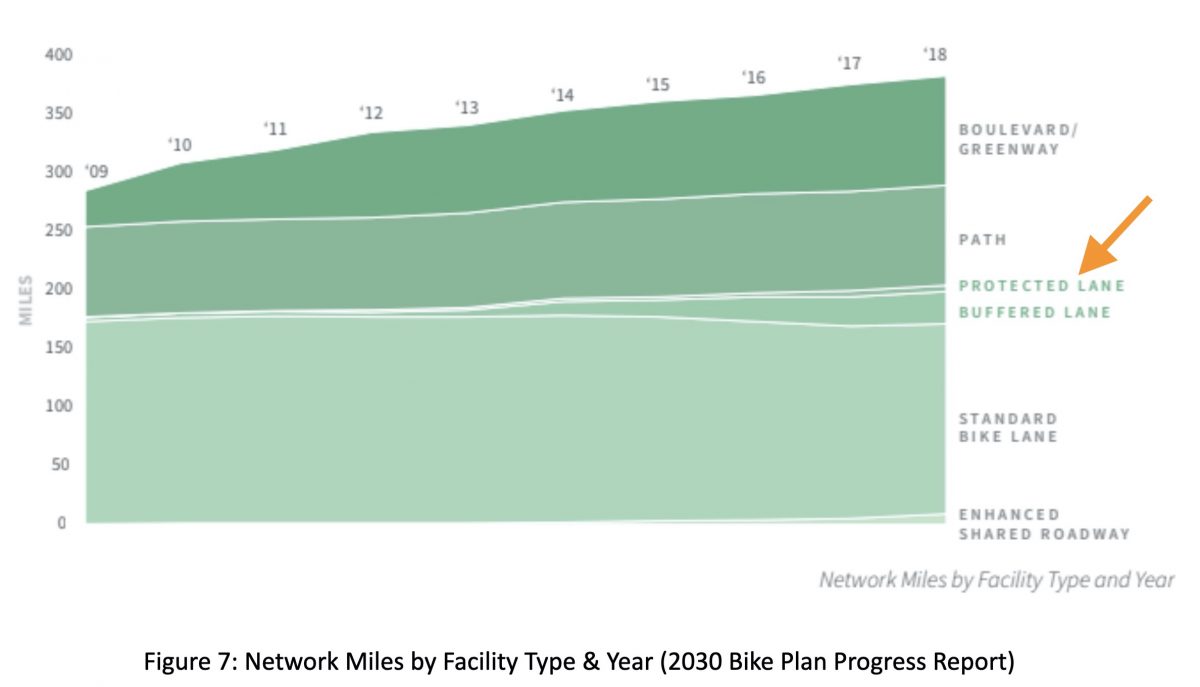
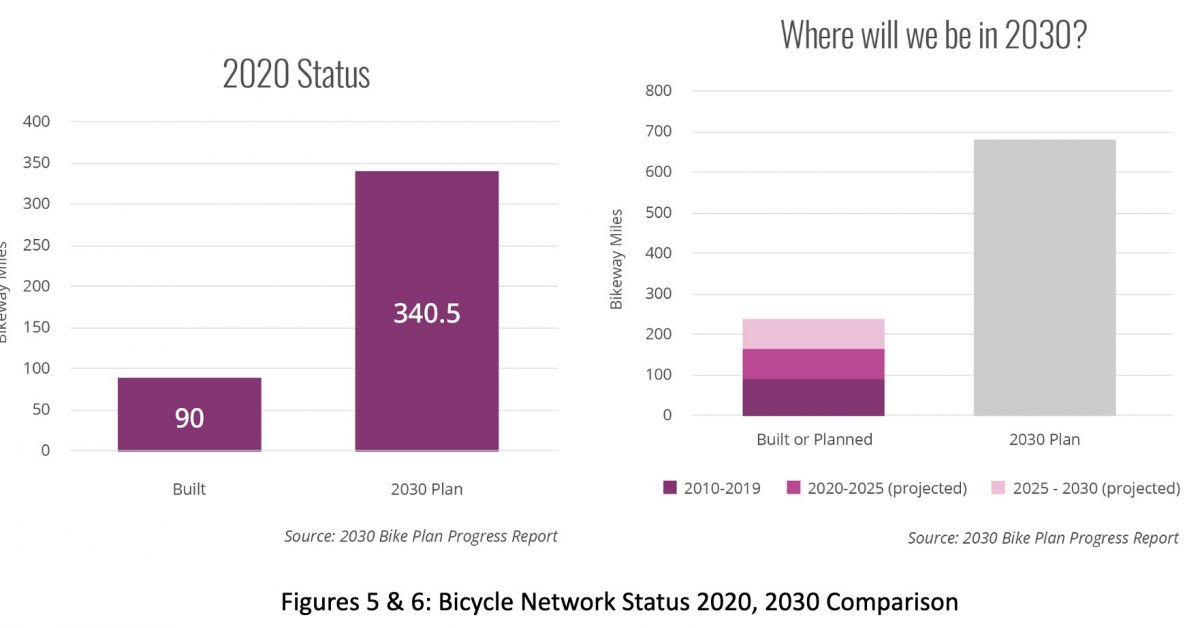
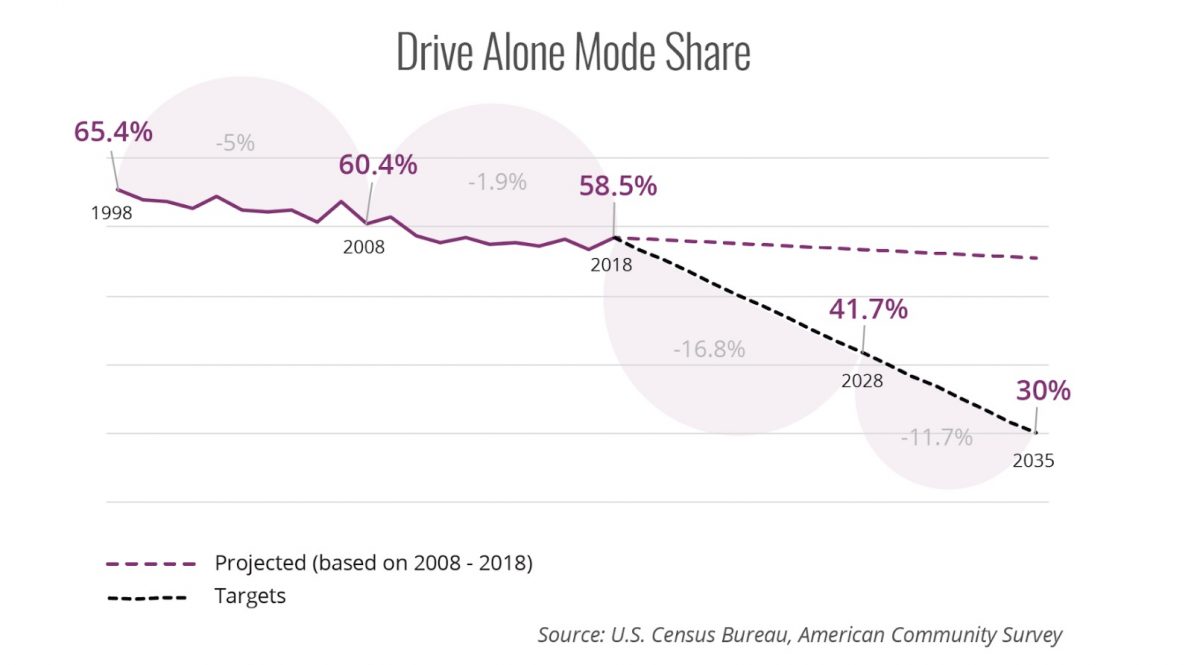
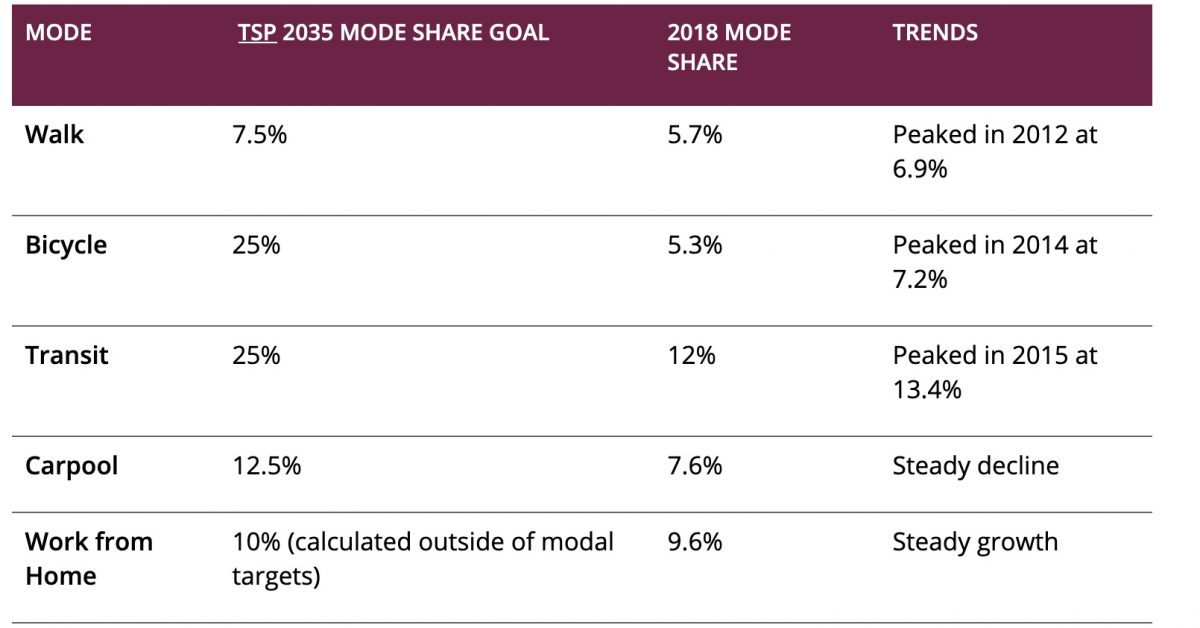
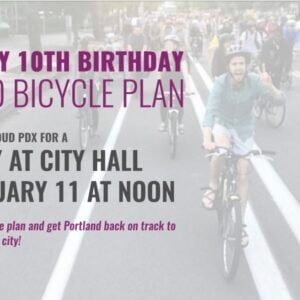
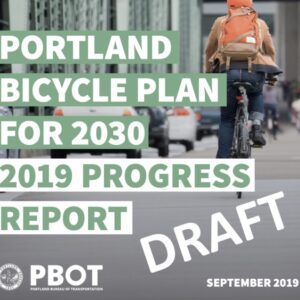

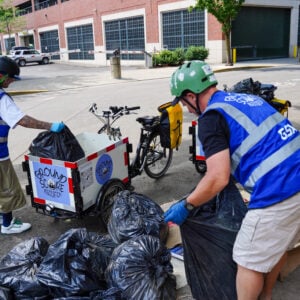
Thanks for reading.
BikePortland has served this community with independent community journalism since 2005. We rely on subscriptions from readers like you to survive. Your financial support is vital in keeping this valuable resource alive and well.
Please subscribe today to strengthen and expand our work.
First, from the proofreader: Eeek – politically palatable rather than “palpable.”
Don’t have time at work to read enough of it, but we certainly need this. Every tiny move towards bike infrastructure is limited by political fear, and those who fear change are reliably loud at City Council. More later…
Encouraging to see so much growth in work from home option. If we’re trying to cut CO2 emissions, we should incentive employers, especially old-fashioned ones, to let more of their employees do this. The only new infrastructure we’d need is bandwidth!
While I generally agree, if you run your heat/AC when you work from home, but not when you are away, biking/busing to a collectively heated/cooled location can reduce emissions.
So, as always, your mileage may vary.
Wow, you really have a lot to say here, don’t you? (rhetorical question)
Bikeloud: 1
PBOT: 0
So proud of these folks for cutting to the chase.
Now let’s see how PBOT, or the City, responds (not holding my breath).
I think the “Carfree day ” as an annual event is not setting the target high enough. The closest to this is the annual Bridge Pedal. This keeps getting pealed back every year so it is now skipping several bridges.
A Carfree day should be scheduled once a month for the area from 205 to Skyline and the Columbia river to Oregon City
Good point, actually! (Not sure why TheLastVoyeuger was being snippy.) Ultimately, some space needs to be heated/cooled, so it is a fair question to ask if it’s more efficient to do this in large commercial buildings or single-family homes. When I work from home on chilly days I keep the house heat down and a small space heater in my office, to save energy. I don’t have a portable A/c though.
Like the bus: running a bus is less efficient than running a car, but if the bus is already going where you are, it’s better to take it. Likewise, if your office is already being heated… if anything, your presence will decrease the heating need by adding a “biowarmer” to the equation.
It’s why I stable a horse in my bedroom… it cuts my heating bill dramatically.
“It is not clear to people in the advocacy community how PBOT selects upcoming projects to implement.” (page 8)
Back when I served on the PBOT budget (bureau) advisory committee, a high-ranking transportation engineer explained to us, very honestly, how her department determines which project to do next or not. The two main criteria, really the only criteria in fact, were:
1. How much extra funding does the project leverage versus all other possibilities; and
2. How much political push was there for a project from the mayor (Sam Adams at the time, who also happened to be the transportation commissioner) versus the push-back of other possible projects from the community, other agencies, and other engineering staff.
I’d like to think PBOT is a much more rational agency now, but that would make them a rare exception among DOTs nationwide.
“5. CHALLENGE: PERCEIVED LACK OF POLITICAL SUPPORT” (page 11)
OK folks, here’s a little secret: City Council isn’t the only government in the City of Portland. Not by a long shot.
First of all, there are other jurisdictions who can and do raise tax revenue: Multnomah County (plus tiny bits of the city are in Washington & Clackamas counties) + School districts (Portland, Park Rose, David Douglas, 20% of Reynolds, 40% of Centennial) + Metro + State of Oregon (ODOT) + water districts + soil districts + etc etc. If they want to, any of these taxing bodies can raise objections, and in the past the David Douglas School District has in fact blocked or severely modified bike and roadway projects in East Portland while everyone knows about ODOT and its record citywide.
Secondly, it’s not just elected officials who make up “government”, it’s also the people being governed, the bureaucrats who operate government, and other agencies who pay for PBOT services. BES contributes approximately 30% of PBOT’s annual revenue, generally to clean and maintain sewers via PBOT’s maintenance division – they have a big indirect say in PBOT politics, but they also influence the PBOT laborers who have to do the dirty work. And PBOT as an agency is far from unified – it’s really lots of separate competing agencies going after very limited funds, each agency with very little power, wanting to exercise that very little power to maximum effect.